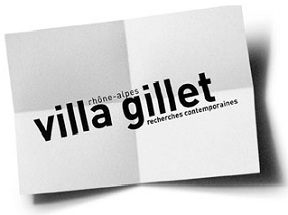Some Thoughts on Identity
Claude Arnaud is a writer and a columnist for the cultural section of the journal Le Point. He is the receiver of the Femina First Novel Award for Le Caméléon [The Chameleon] (Grasset, 1994) and of the Femina Essay Award for Qui dit je en nous ? [We Contain Multitudes] (Grasset, 2006). In his latest novel, Qu’as-tu fait de tes frères ? [What Have You Done to Your Brothers?], the author delivers the story of young Claude and his family, shattered by the events of the year 1968 in France. A family tragedy that takes the form of a fascinating chronicle of a society on the rise, where life is lived on the edge of death.
It is the topic par excellence, the enigma that is impossible to solve. This puppet that we call somewhat pompously “The Self,” what is it in the end? An actor who resigns himself, around the age of thirty, to play only one role, or a born clown who struggles to understand himself, having changed so often?
This is the question that the hero of Le Caméléon is obsessed with, the one that makes the bisexual character in Le Jeu des Quatres Coins the black hole of the tribe surrounding him. It is the mystery bothering the impostors, the quick-change artists, and the other self-manufacturers who haunt Qui dit je en nous? It is the thread that runs through the coming-of-age novel which begun with Qu’as-tu fait de tes frères? and continued with Brèves saisons au paradis.
Always tempted to disown what has constituted him so far, everyone here dreams of being easily identifiable. Yet how can we be recognized, if not loved, when we never cease to differ from ourselves? This was Chamfort’s dilemma, and this was Cocteau’s too, as their biographies attest.
For a long time I thought that I could become other than myself. I refused to be assigned an identity – a form of incarceration in my eyes. I was living my “self” like a fortress from which I could escape from time to time, to inhabit another body, a more sturdy consciousness. Looking for a shell in which to curl up, I wandered, probing every face with the hope of recognizing the one I was going to colonize: a hermit crab.
It affected my way of looking at other people.
My psychological instability was such that I needed to divide them into groups and categories, to assign them origins and colors, in order to give them a semblance of coherence. I had to assemble them into families, into tribes, into nations, and then make a selection in this disturbing mass to really figure them out. I reduced them to their obvious identity; I reified them under the auspices of their nationality, their gender, their milieu, or their faith. I confined them to their supposed definition, knowing all too well that this was only the visible part of the iceberg.
Unable to feel for the group, I was eager to attach myself to some, as few and as singular as possible: the others, for the most part, remained some kind of psychological stumps.
They are so many, “the others”!
It is too much for one single man.
It is difficult to grant an existence, a meaning, and therefore a tangible identity to the billions of people with whom we share the earth – not to mention the mammals and the dragonflies, whose otherness is reduced to almost nothing for us.
In fact, I was only able to do this through novels, movies, fiction in general, the only magician who can transform us into the man or woman we meet everyday, who is able make us feel from the inside what they feel in extraordinary situations. The rest of the time, all I saw in them was a faraway presence, mere supernumerary forms.
My heart has become sturdier, my skin tougher.
Could the mollusk have turned into a font?
I doubt it. Because I feel, at times, that everything in me could be set in motion again. My being threatens to enter a new cycle, my sexuality is more than willing to mutate again. The powerful logic of alteration that has lead my maternal uncle and my older brother to schizophrenia is making itself known to me; the merry-go-round starts to turn again, changing my whole view of the world.
How much I envy, in those moments, people who have a psychological “roof”!
How worrisome it is, this capacity to drift!
I feel as if I am the remote cousin of the legendary Flying Dutchman, condemned to wander endlessly over the seas until the day he finds the soul mate who, by loving him, will know how to take him back to dry land, to tangible reality.
But how beautiful it is also, this tendency to drift! Deep down inside, we believe that we are staying young, we imagine that we are not ageing as fast as the others. The anti-psychiatrists had renamed this madness “the journey” to emphasize its romantic dimension; I am still the nephew and the little brother of two great travelers who died in an asylum: the first in Corsica, where our mother came from, the other in this little French town where our father was born.
Cette ressource a été publiée dans le cadre de la quatrième saison du festival "Walls and Bridges", organisé par la Villa Gillet, qui s'est tenu à New York du 11 au 20 octobre 2012.
Pour citer cette ressource :
Claude Arnaud, Some Thoughts on Identity, La Clé des Langues [en ligne], Lyon, ENS de LYON/DGESCO (ISSN 2107-7029), janvier 2013. Consulté le 24/02/2026. URL: https://cle.ens-lyon.fr/anglais/litterature/entretiens-et-textes-inedits/some-thoughts-on-identity



 Activer le mode zen
Activer le mode zen![[title-image]1332154742309[/title-image] arnaud_1358519505023-jpg](https://cle.ens-lyon.fr/anglais/images/arnaud_1358519505023-jpg)



